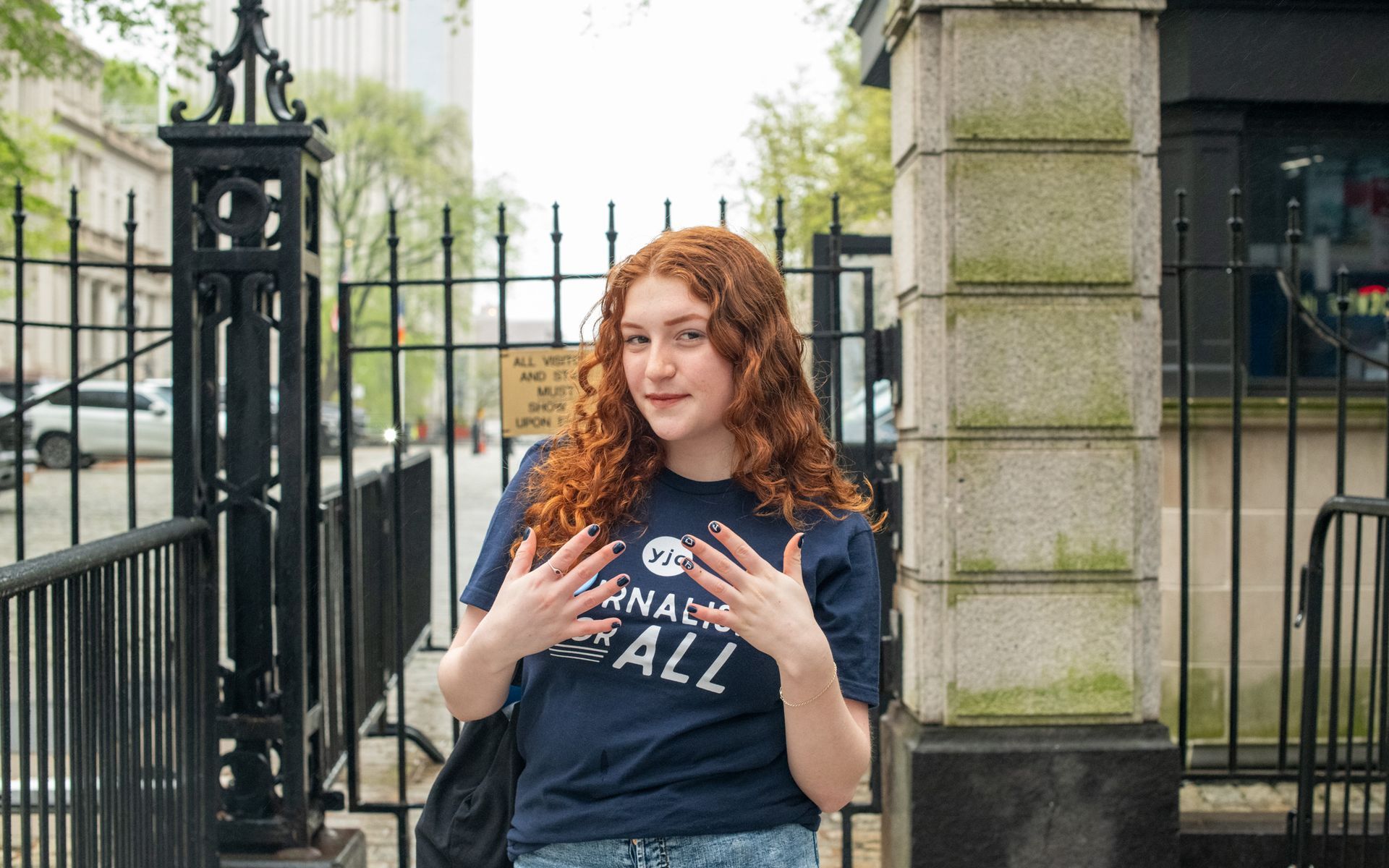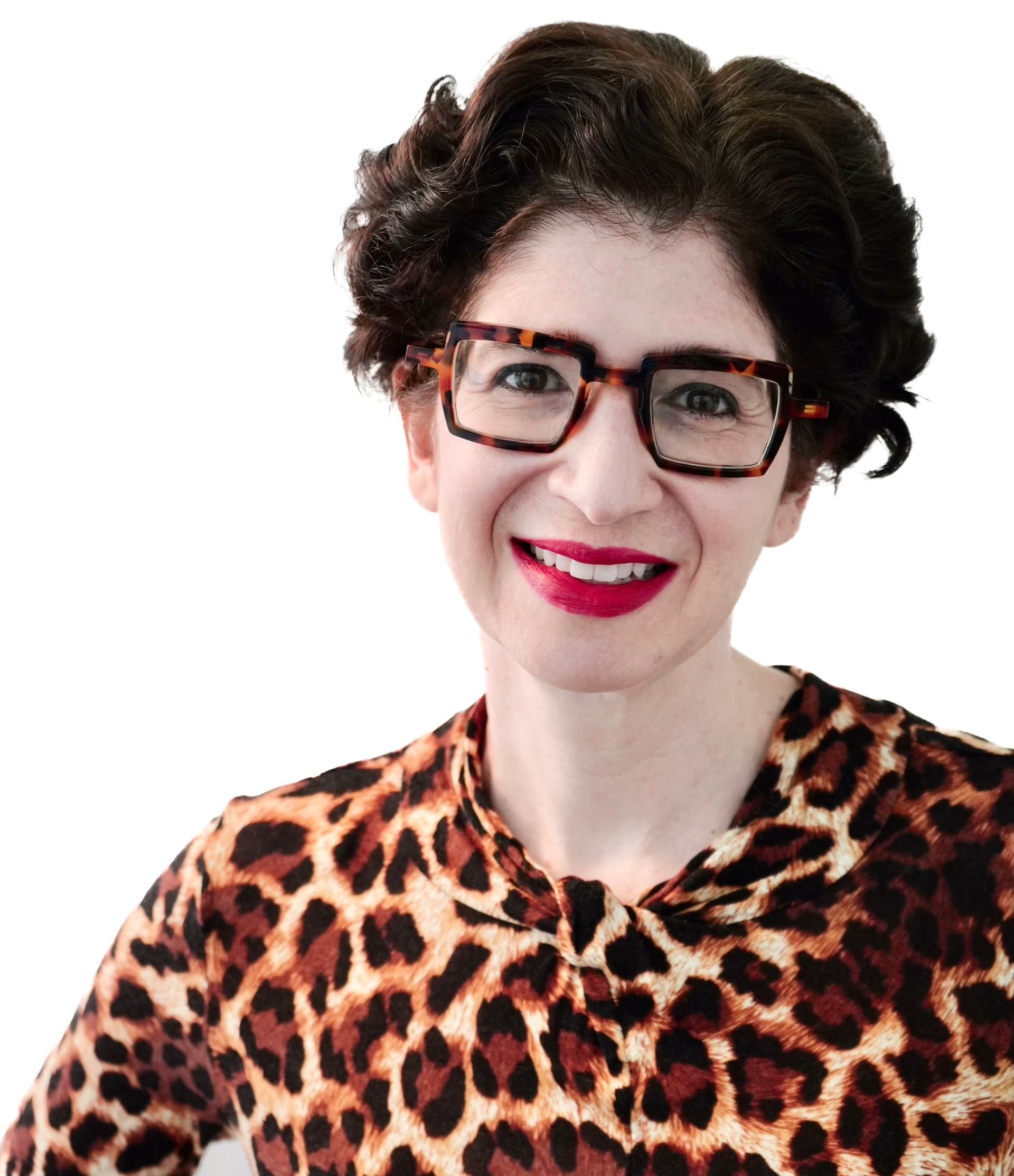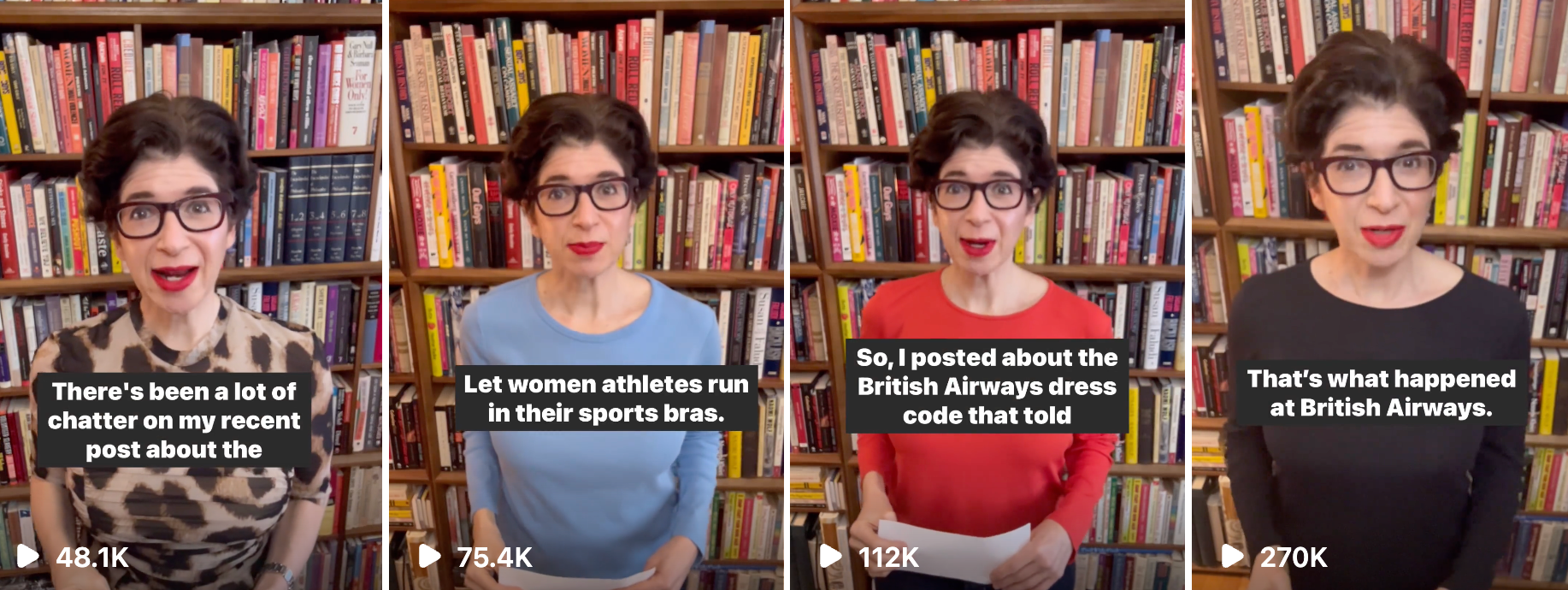Slut-shaming matters because when people are dismissed as sluts, hoes, and thots, they are denied care and compassion as human beings and in a variety of situations, including when they are sexually harassed, sexually assaulted, victimized by image-based sexual abuse ("revenge porn" and "deepfakes"), and need an abortion.
The Latest on Slut-Shaming
August 28, 2024
Two years ago, I received an invitation from a Bronx High School of Science sophomore, Liza Greenberg, to come speak at her school’s National Organization for Women (NOW) Club about slut-shaming. Bronx Science has a reputation of being an academic powerhouse school, so I wasn’t sure how many students would choose to stay after hours to hear my presentation when they could be using that time to keep up with their academic commitments, or rush home to relax after a long day of learning. I was delighted that over two dozen mixed-gender students showed up, and we had a lively conversation about their experiences with dress-coding and other acts of slut-shaming.

A few weeks ago, I was reading an article in the nonprofit education news website Chalkbeat, “NYC girls outperform boys in academics. But they’re unhappier in school,” and was excited to see that one of the coauthors of this eye-opening report was none other than Liza. Based on New York City public school data, the article demonstrates that while girls outperform boys academically, they are far less satisfied with their school experiences in and out of the classroom. Liza and her coauthors wrote that girls are more likely than boys to report feeling stressed during learning–yet less likely to receive support from their teachers.
A few points jumped out:
- Girls are 7 percentage points more likely than boys to say students at their school harassed, bullied, and intimidated each other, both online and in person.
- Black girls reported the lowest level of satisfaction of any race and gender group in 55% of survey questions, and were most likely to say students at their school bullied each other.
- Asian American girls reported feeling the most academic stress and pressure, and were the least likely to say a teacher would notice when they had struggled in class.
I reached out to Liza, now a senior and a member of the NOW club for the past three years, to learn more.

If girls in NYC public schools are doing well academically, why are they having negative experiences in school?
Liza Greenberg: This article is based on NYC school survey data, where hundreds of thousands of students rated how they felt in school across different areas. The data showed some striking differences between how boys and girls rated their school experiences, but it didn’t tell us why these differences exist.
There could be many reasons why girls seem less happy in school despite doing well academically. One possibility is that girls and boys are treated differently by their teachers and peers, often in subtle ways. For instance, traditional gender roles may still influence how girls are expected to behave. Girls might feel pressure to be quiet, compliant, or less assertive in class, while boys are encouraged to take the lead and speak up. Research also suggests that boys might get more “wait time” from teachers to think through their answers and more attention overall, which can impact girls’ confidence and participation.
Another reason that some girls mentioned is they often feel more self-conscious about things like their appearance or how they’re perceived by others, which adds another layer of stress. Additionally, girls may interpret situations differently than boys. For example, what one student sees as harmless teasing might be seen as bullying by another. Finally, some suggest that boys may be less likely to admit feeling stressed or anxious, leading to a difference in how boys and girls report their experiences rather than a difference in their actual experiences. Personally, I think there’s truth to all of these explanations.
Have you personally seen girls being unsupported or singled out?
Liza Greenberg: There are definitely incidents where girls have felt unsupported or singled out. Often, it’s the little things that add up—like offhand comments or jokes that don’t land right. For example, I think many teenage girls have witnessed a female peer being interrupted or talked over in class, and while it might seem minor at the moment, these experiences can build up over time and affect one’s confidence in the classroom.
There’s also research showing that girls experience things like sexual harassment and slut-shaming, which can make school a very uncomfortable place. These incidents may happen inside or outside the classroom, but they contribute to a negative overall experience. Even if they don’t happen directly to you, just being in an environment where these things are happening can make the school feel less enjoyable and supportive.
I enjoyed visiting the Bronx Science NOW Club in 2022. I was excited to see that so many students cared about feminism! Could you describe the club and how it helps with girls' negative experiences in school?
Liza Greenberg: The NOW club at my school is essentially our feminist club, and it’s a space where students can come together to discuss issues related to women’s rights. We talk about problems that girls our age face, both in high school and beyond, and also broader issues related to women’s rights around the world. One of our recent projects was organizing a pad and tampon drive for a local women’s shelter. We collected over 60 boxes after setting up a drop-off donation bin in our school cafeteria and one very rainy afternoon the NOW club walked over to the shelter to deliver them.
Clubs like NOW are important because they provide a supportive community where students who care about these issues can connect with others who feel the same way. These clubs help students feel more confident when it comes to confronting sexism or standing up for themselves and others if situations arise in school. They also offer a space to learn about different perspectives and develop a deeper understanding of the history of the women’s rights movement. While we wish we had more members, we hope by fostering these conversations and connections, clubs like NOW can be a powerful force in addressing some of the negative experiences that girls face in and beyond school.
What do you wish NYC public schools did differently to help all students, regardless of gender?
Liza Greenberg: The first important step, which is already done, was collecting data about how different groups of people are feeling in their school environment. The survey data we looked at doesn’t just highlight the experiences of girls, it also shows that other minority groups aren’t feeling as fulfilled in school.
The second step is for schools to take this data seriously and use it to identify what’s happening in the classroom and elsewhere that’s contributing to these disparities. In my opinion, the students are making it clear how they feel, so it’s now the responsibility for administrators, teachers, and even the students themselves to figure out the most effective strategies to fix the problems. As we highlighted in the article, many schools are already doing this, and having success in that traditional gender stereotypes are being dismantled and equal emphasis is placed on making school a positive educational experience for all students.
As a senior, are you and your friends planning to do anything this year to uplift girls at your school or elsewhere?
Liza Greenberg: Absolutely. The NOW club at my school is continuing its work, and they have a lot of exciting discussions and activities planned for this year. Beyond that, I’m also part of the Gender Equity Board (GEB), which focuses on increasing female enrollment in classes that are male-dominated at our school, primarily advanced math, computer science, and physics.
Through GEB, we’ve been working to identify what’s happening in the classroom that might discourage girls from taking these courses, and we’ve been proposing solutions to address those issues. We’ve presented our ideas to the faculty, sharing our own experiences, and offering suggestions for how to create a more equitable learning environment. This work is something I’m really passionate about, and I’m excited to continue it during my senior year. We have some promising projects on the horizon, and I’m hopeful that we can make a real difference.
Key takeaway: Liza and her peers are taking steps to create supportive environments for students of all genders. School administrators would do well to follow their lead.
What do you think? Email me and share your thoughts.
“Boys will be boys, and girls will be sluts.” — Leora Tanenbaum
Want to learn the difference between a compliment and a creepy comment? Check out my useful decoder.

